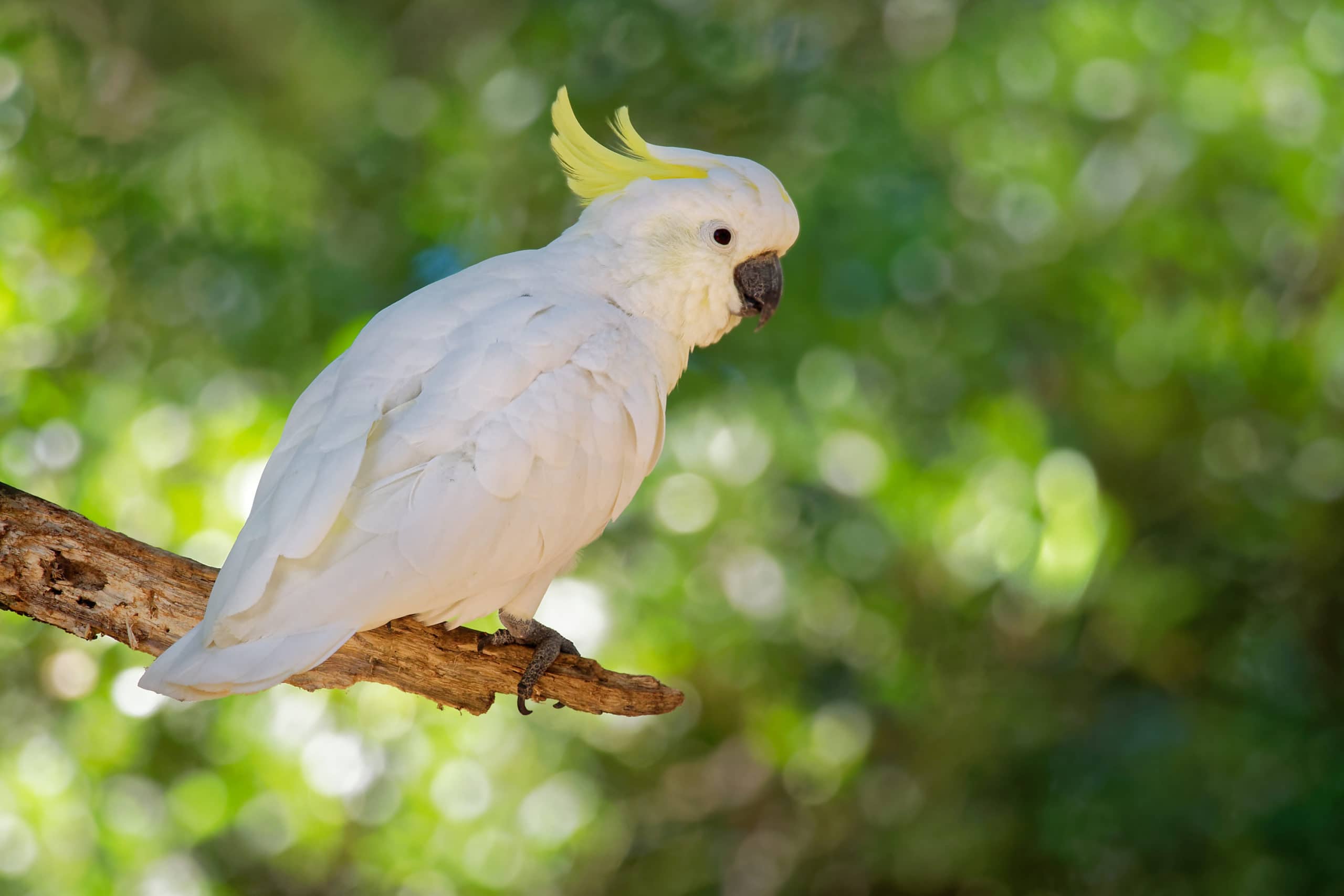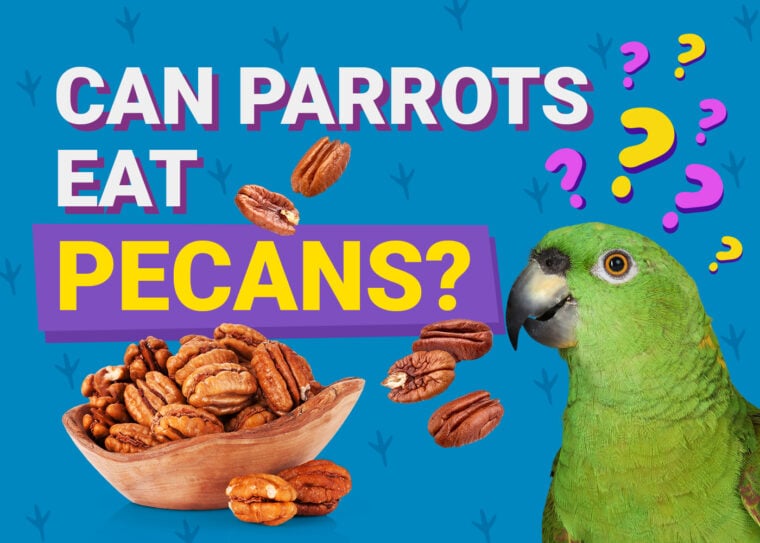
Giving your parrot a balanced diet is the best way to help him live a long, healthy life. There is a tremendous amount of information written about the optimal nutrition for these magnificent pet birds. Unfortunately, much of this information is out of date. There is certainly not an adequate diet that is applicable for all types of birds. Fortunately, in the last few years, a lot of progress has been made in the diets available.
Seeds can be offered to your parrot, but should not account for more than 20% of its diet. It is also possible to offer a variety of nuts, such as pecans, walnuts, almonds, or hazelnuts. On the other hand, these are rich in fat and are not recommended for birds at risk of being overweight. We’ll talk more about the ideal diet for your beloved parrot below.
The 3 Important Facts About the Nutrition of Pet Parrots
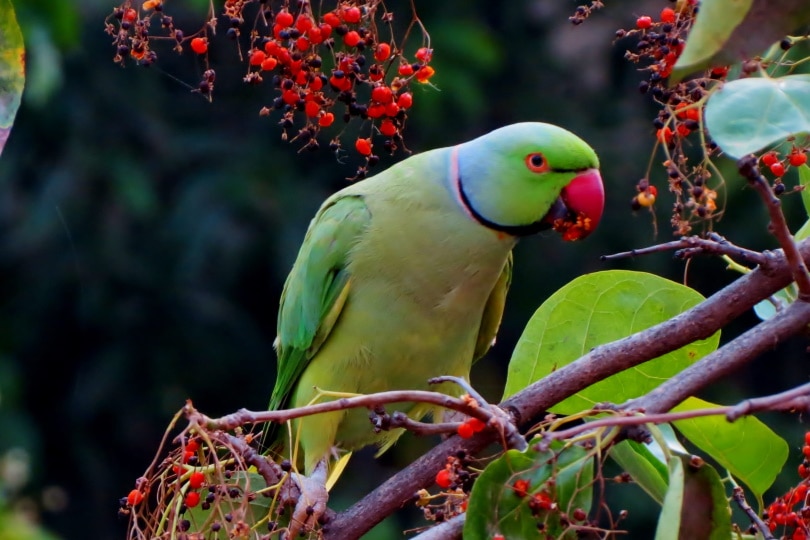
What’s Wrong With a Diet Rich in Nuts and Seeds?
Seeds are high in fat and deficient in several vitamins and minerals. Therefore, a diet containing exclusively seeds promotes the development of health problems. In the wild, birds eat seeds, but these seeds come from growing plants and are only available at certain times of the year.
So, why do some birds refuse any food other than seeds if they are not even part of their diet all year round and they do not eat peanuts, sunflower seeds, or safflower normally? Research has shown that the high percentage of fat in the aforementioned seeds produces a “surge” of energy. Birds develop a dependence on these high-fat seeds and if they are deprived of them, they become depressed and would do anything to put a seed under their beak! It’s sort of the equivalent of humans with a sweet tooth.
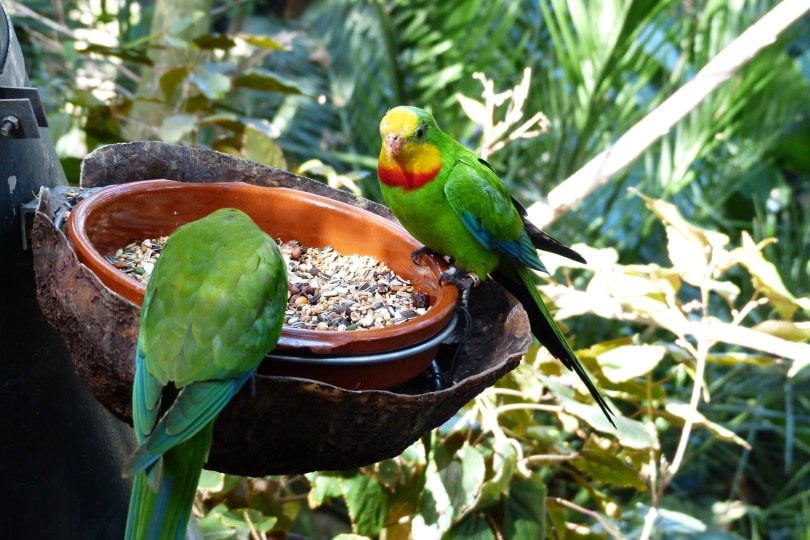
What Should You Feed Your Parrot?
It is certainly impossible to provide parrots with the same foods they would find in nature. Since not all birds are the same, it is essential to provide your parrot with a varied diet. The nutritional requirements of a bird depend on factors such as age, type of life (breeder versus companion), species, and environment. The foods you choose also need to be practical, otherwise, most of us will go simple and give new seeds. Providing a balanced diet for your bird is a commitment you made when you first adopted it and it is essential that you stick to it to keep your pet healthy:
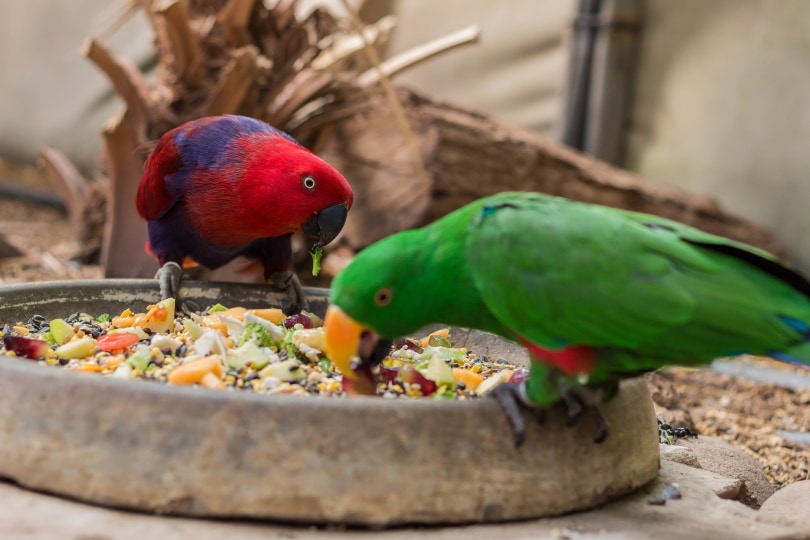
Is It Necessary to Give Your Parrot Vitamins and Minerals?
When a bird is fed a balanced diet, it should not need any mineral or vitamin supplement. If your bird is eating an unbalanced diet, adding vitamins and minerals is suggested while you convert to a more appropriate diet. The best choice of vitamins is a powder that you sprinkle on soft food. Vitamins placed in water are often inactivated, and they can change the taste of the water which unfortunately can cause your bird to not drink enough. Adding them to drinking water can also promote bacteria growth.
Bottom Line
Nuts such as pecans, almonds, walnuts, hazelnuts, and Brazil nuts contain a very high protein content, but also fat. Some species of large parrots, such as macaws, for example, need nuts in their diet to provide them with an adequate protein intake.
Offer the nuts with the shell, without cracking them in advance, to make your bird’s beak work. Make sure the nuts are fresh before offering them because mold could cause serious health problems for your pet.
Related Reads:
Featured Image Credit: Piqsels




